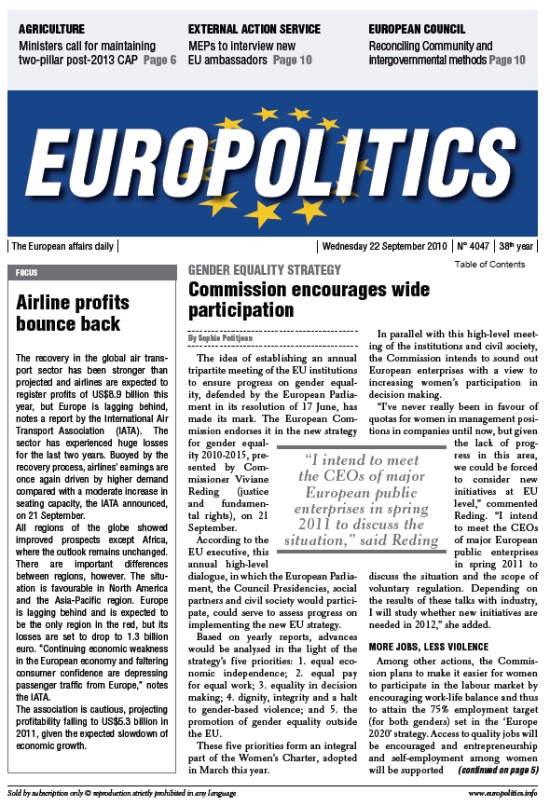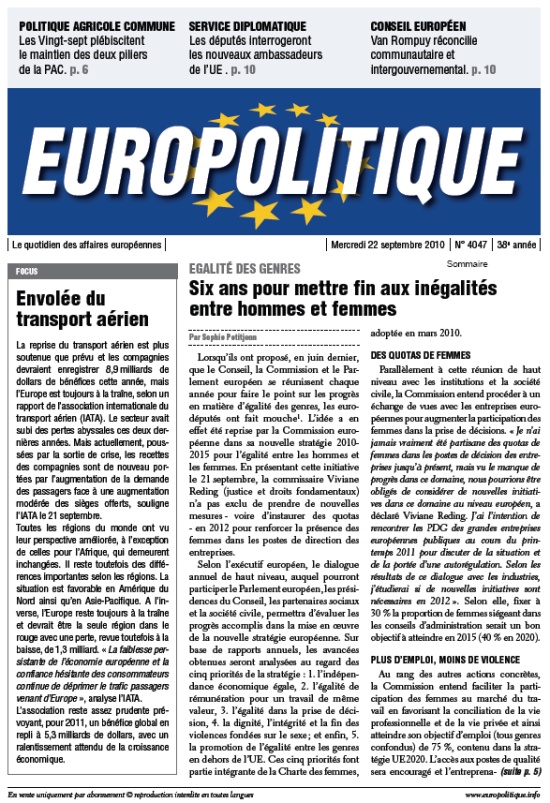by Sophie Petitjean

1. equal economic independence;
2. equal pay for equal work;
3. equality in decision making;
4. dignity, integrity and a halt to gender-based violence; and
5. the promotion of gender equality outside the EU. These five priorities form an integral part of the Women’s Charter, adopted in March this year. In parallel with this high-level meeting of the institutions and civil society, the Commission intends to sound out European enterprises with a view to increasing women’s participation in decision making. “I’ve never really been in favour of quotas for women in management positions in companies until now, but given the lack of progress in this area, we could be forced to consider new initiatives at EU level,” commented Reding. “I intend to meet the CEOs of major European public enterprises in spring 2011 to discuss the situation and the scope of voluntary regulation. Depending on the results of these talks with industry, I will study whether new initiatives are needed in 2012,” she added.
More jobs, less violence
Among other actions, the Commission plans to make it easier for women to participate in the labour market by encouraging work-life balance and thus to attain the 75% employment target (for both genders) set in the ‘Europe 2020’ strategy. Access to quality jobs will be encouraged and entrepreneurship and self-employment among women will be supported at European level through targeted initiatives. In accordance with the Women’s Charter, the Commission will also promote the principle of equal pay for equal work, including the launch of a European day for equal pay. It would be held annually to build awareness that women earn an average of 17.6% less than men in the European Union. The executive will also work with member states to eradicate violence against women and will give priority to fighting female genital mutilation. It will kick off an integrated strategy to combat violence against women in March 2011, including an information campaign at European level. “Europe was a precursor with its inclusion of the principle of equal pay for equal work in the Rome Treaty in 1957. We can continue to be precursors today for women’s participation in decision making and the fight against gender-based violence,” said the commissioner. Some 61% of Europeans find that the EU should be proactive on these problems. In a recent Eurobarometer survey, 87% of respondents called for tackling the problem of violence against women.Women’s lobby pleased
Myria Vassiliadou of the European Women’s Lobby welcomed the new strategy, stating that women’s associations were expecting tough monitoring and concrete results, especially as regards all forms of violence against women and the equal participation of women in decision making. “What we need is binding measures and full implementation,” she said.



